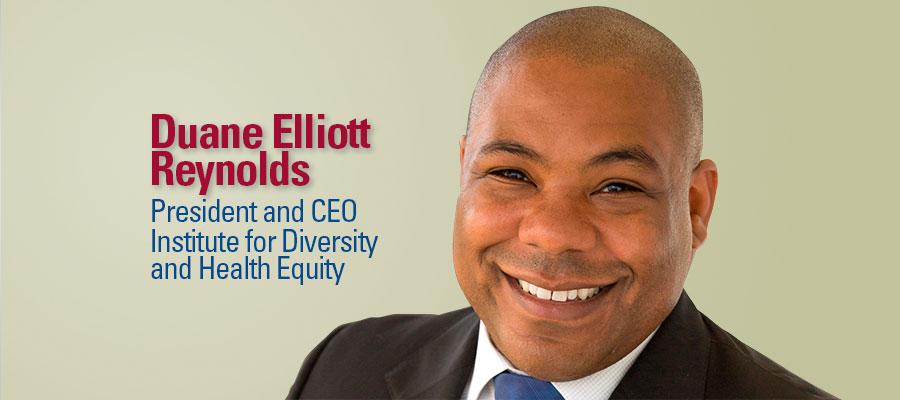For health care organizations, health equity takes center stage

Hospitals and health systems are increasingly prioritizing diversity, inclusion and health equity in their strategic decision-making. I heard this from many leaders last week at the American College of Healthcare Executives Congress on Healthcare Leadership in Chicago.
There were a few key points from ACHE that stuck with me, including:
- Increasing diversity in our field requires an investment from leaders to mentor diverse early careerists.
- Local and federal policy will play a key role in advancing improvement in health equity (e.g., reimbursement for social determinants of health, requirements for disparities collection and data use for intervention, etc.).
- Analytics demonstrating clinical and financial outcomes will be key to translating the value of a hospital’s strategic focus.
- One organization alone cannot solve health inequities; it requires multiple community partners and stakeholders.
In support of this, the AHA continues to raise the national profile of hospitals’ and health system’s efforts to advance high-quality care and value for all people.
For example, at the recent National Association of Latino Healthcare Executives conference, Nicholas Tejeda, Group CEO of The Hospitals of Providence and current board chair of the AHA’s Institute for Diversity and Health Equity, kicked off the meeting with a powerful call to action for leaders to ensure health equity is always at the center of the stories we create every day. Tejeda also presented at ACHE’s Thomas C. Dolan Diversity Address and Breakfast, where he touted diversity as a strength that improves an organization’s competitive advantage by breaking down barriers.
The AHA is collaborating with other national and local organizations to lead efforts to increase diversity and achieve health equity.
National Urban League Alliance. The AHA/National Urban League Alliance connects hospital and health system CEOs with local Urban League Affiliate CEOs interested in serving on governing boards of hospitals and health systems; develops resources for the field and shares best practices on community health worker programs; and promotes shared policy solutions to persistent challenges that affect the health of vulnerable communities.
UnidosUS Alliance. The AHA and UnidosUS Alliance connects UnidosUS leaders with governance opportunities at AHA hospitals and health systems. It also steers and promotes grant work that bolsters progress on social determinants of health by fostering programs and services that improve opportunities for Latinos, and collaborates on solutions around youth violence prevention and post-trauma support in communities.
Hospital Community Cooperative Program. The AHA, with support from the Aetna Foundation, last year launched a national program dedicated to closing gaps in health care. The Hospital Community Cooperative program challenges 10 AHA member hospitals in diverse communities to address one or more goals of the AHA’s #123forEquity pledge and one or more of the five domains comprising the Aetna Foundation’s Cultivating Healthy Communities program to tackle public health issues.
To learn more about opportunities and strategies to increase diversity and inclusion and advance health equity in your organization, visit www.diversityconnection.org.
Duane Reynolds is the president and CEO of the American Hospital Association’s Institute for Diversity and Health Equity. He also is a vice president of the AHA.

